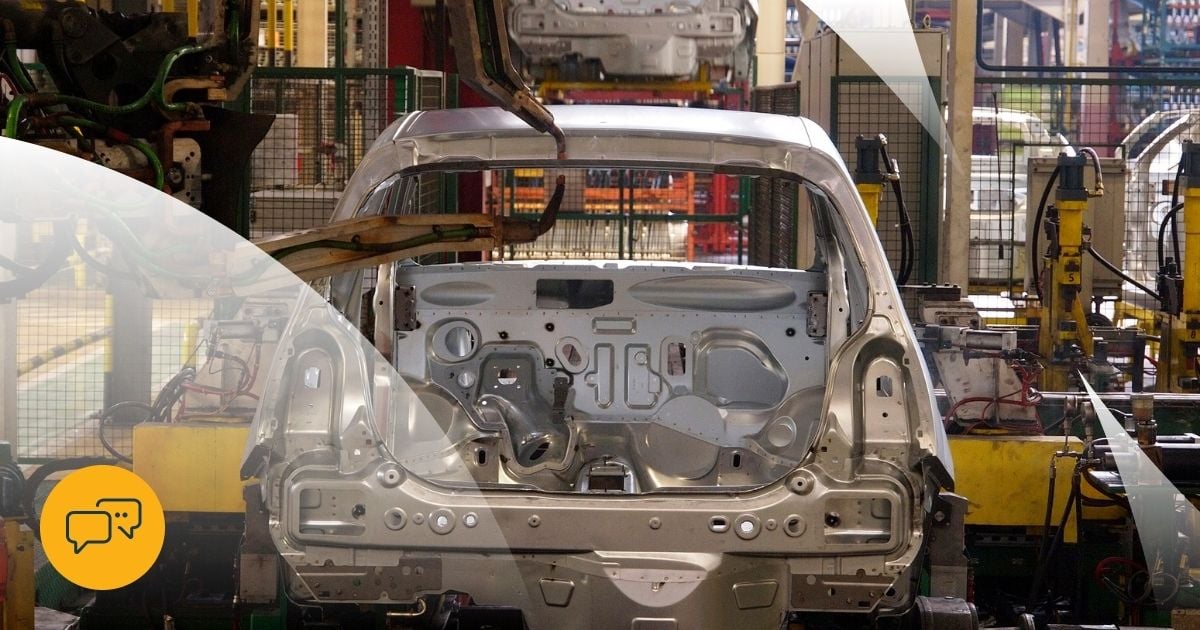Businesses in manufacturing industries offering complex products or services to their customers often have 3 problems in common:
- The sales process is lengthy due to the level of precision needed and the number of stakeholders
- How complex the products or solutions are can extend an already long sales process further
- Price calculations can be manual and difficult but require 100% accuracy due to slim margins
Nevertheless, today's customer expectations are on the rise and level with those in non-complex B2C sales. Customers demand accurate quotes at the best price, frictionless buying, and fast, transparent delivery. So how do today's manufacturing and engineering businesses rise up to this increasing challenge?
In the age of Industry 4.0, manufacturers can't avoid technology when boosting profitability and revenue. When it comes to automation technology and digitization of sales, one of the first options to look at for manufacturing businesses is the ubiquitous Configure Price Quote (CPQ) function. (For those new to CPQ, feel free to read our article "What is CPQ?")
How do I know my manufacturing business will benefit from CPQ?
In this article, we want to point out the 10 most important business indicators that your manufacturing company will benefit from CPQ software.
1. Does the complexity of product configurations affect your margins?
How many products, components, parts, materials, finishings, or other manufacturing processes are usually compiled in your BoMs? The larger the BoM, and the more difficulty in product configuration, results in a higher potential to save money via automation. The accuracy in costs and prices enabled by automation protects your margins. If this is the case for your business, it makes sense to digitize this part of the sales process and tie all data to your product models. Alternatively, you can also import the data of existing models from your ERP directly in CPQ software.
2. Is pricing and product information from your ERP always available to sales?
24/7 available product and pricing information from the backend is a prerequisite for accurate proposal generation. This can help your sales team react with much higher agility and reliability. With a cloud-based digital sales solution with embedded CPQ, you can make all relevant data available for sales anytime, anywhere, and on any device. When assessing a quotation platform, also make sure that it is compatible with your existing product or configuration models (thinking Lo-Vc or IPC models) and can seamlessly connect to your back end.
3. Do your sales teams make costing and pricing errors?
A key feature of a well-integrated CPQ is the ability to access all sales-relevant data from your ERP system. It can import all pricing information directly, which helps shorten the quoting process tremendously. With a CPQ system specialized in manufacturing sales, your sales reps can leverage an internal pricing engine that is especially useful for managing complex costing in ETO and MTO industries. Another factor is the inclusion of external and internal pricing within the CPQ system that helps prevent cost-inducing errors and increase costing accuracy.
4. Are your approval regulations increasing the length of the sales cycle?
Workflows and approvals are there to protect the accuracy of a quote. However, they also increase the length of your already long sales cycle. Unnecessary approvals can be avoided if your digital sales solution can define triggers that are set for error-prone steps of the quotation process. For example, not every configuration of a manufacturing product requires approval by engineering departments. With an advanced sales collaboration tool approvals and routing can be set up individually to accelerate the process. Approvals can be sent only to necessary departments without any detours.
5. Are your margins eaten up by real production costs later?
Costing complexity, especially in engineering-to-order (ETO) or made-to-order (MTO) scenarios, has a direct impact on your margins. The actual product margin is difficult to estimate, so when the sales team prepares the quotations, the costs are only “assumed” to be correct, and the applied margins over those costs remain theoretical. With a CPQ specialized for MTO and ETO industries, real-time costs can be used to compare against the ones used in the quotation, when the production process starts. This allows to greatly increase the accuracy of margins over time.
This was part 1 of our list of indicators helping you to understand the benefits of a CPQ solution. Watch out for part 2 of this series where we will extend this list with questions targeting Time-to-Quote issues, promotion introductions, revenue potential from up and cross-sales, and more.
Do you already have an idea of how a CPQ can help your manufacturing business improve profitability? Sign up for our free trial to browse industry-specific demo scenarios and try out some of the above-mentioned features.

 Deutsch
Deutsch






